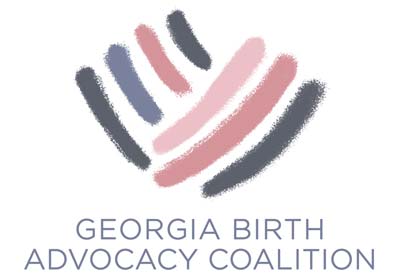Can I Give COVID-19 to My Baby When I'm Pregnant? Everything You Need to Know About Vertical Transmission
The headlines about COVID-19 and pregnancy are terrified, and often heavily sensationalized. They tell us that scientists don’t know if babies can get COVID-19 in utero, or regale us with worrisome stories of newborns diagnosed with the disease at birth, or shortly after. So can you give the novel coronavirus, which causes the disease COVID-19, to your baby when you’re pregnant? The short answer is that it’s unlikely. The virus, however, is new and there’s a lot scientists don’t know. Here’s what you should know if the headlines have you scared.
Vertical Transmission: Can I Give COVID-19 to My Baby When I’m Pregnant?
Reports about babies as young as 16 hours old getting the novel coronavirus have raised the specter of vertical transmission—a pregnant person giving the virus to the baby in the womb. So far, there is no scientific evidence that you can transmit the virus to your baby while you’re still pregnant. However, all studies on the topic have been very small. Here’s what the data tells us so far:
A case report on two mother-baby pairs in which the mother had COVID-19 found that the babies did not get the disease. Researchers also found no evidence of the virus in the products of conception.
A systematic review that included all cases of COVID-19 in pregnant women as of April 2020 found no cases in which a baby got the infection during pregnancy.
So far, no research has found any signs of COVID-19 in amniotic fluid or the placenta.
An early study of 38 women who had COVID-19 during the third trimester found that none transmitted the virus to their babies in utero.
A study of nine women with COVID-19 found that none transmitted the virus to their babies during pregnancy.
A study of 116 pregnant women in China with COVID-19 tested both the babies and amniotic fluid for signs of the virus. There was no evidence of vertical transmission, and 86 percent of babies who were tested for the virus tested negative.
What About Breastfeeding? Can I Nurse My Baby?
So far, no research suggests that COVID-19 shows up in breastmilk. But the data on this point is scant. A single study that included just nine women checked breastmilk for the virus. There was no evidence of the virus in the mothers’ milk. Such a small sample cannot produce conclusive data, though.
Previous research on SARS, a similar virus, also looked at breastmilk. In a single case of a woman who had been infected and recovered, there were antibodies in her breastmilk. If a similar thing happens with COVID-19, breastmilk could provide some immunity. Breastmilk remains the safest option during a pandemic, since it is accessible and free, less prone to contamination, and immune to supply chain issues.
Breastfeeding mothers who have COVID-19 or who have been exposed to someone who has, just like all parents exposed to the virus, should take extraordinary precautions to avoid transmitting the virus. That includes wearing a mask, avoiding oral contact, frequent handwashing, and avoiding coughing or sneezing near or on the baby. Almost all public health agencies advise mothers to continue breastfeeding even if they have the virus.
Is COVID-19 Dangerous to Babies?
Large data pools from the center of the outbreak as well as more recent data from the U.S. both suggest that children are less likely to suffer serious complications from COVID-19. That does not mean they are immune. In fact, newborns may be more vulnerable to serious complications than older children. CDC reports that most COVID-19 hospitalizations in young people were among infants younger than 1 year. Data from China also supports this conclusion.
It’s important to note that respiratory infections that are mild in children and adults are often quite severe in newborns because of their unique and underdeveloped respiratory tract. There’s no reason to think COVID-19 is an exception to this. As we learn more about how the virus spreads, it becomes easier to protect yourself and your baby. Read our blog post on preventing COVID-19 infection during and after pregnancy. We’ve also covered how COVID-19 affects pregnancy.
While the science is mired in uncertainty, one thing is clear: even in a pandemic, you have a right to make decisions about your body and your baby. Check out our comprehensive guide to your childbirth rights in Georgia during COVID-19.

